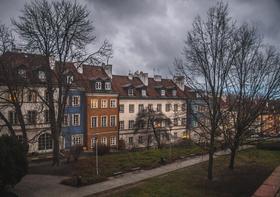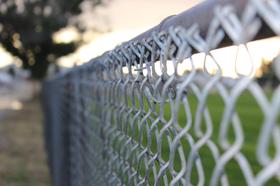For the 2025-26 school year, there are 7 public elementary schools serving 2,619 students in 29440, SC.
The top ranked public elementary schools in 29440, SC are Kensington Elementary School, Sampit Elementary School and Brown's Ferry Elementary School For The Creative And Perform. Overall testing rank is based on a school's combined math and reading proficiency test score ranking.
Public elementary schools in zipcode 29440 have an average math proficiency score of 25% (versus the South Carolina public elementary school average of 41%), and reading proficiency score of 31% (versus the 47% statewide average). Elementary schools in 29440, SC have an average ranking of 3/10, which is in the bottom 50% of South Carolina public elementary schools.
Minority enrollment is 64% of the student body (majority Black), which is more than the South Carolina public elementary school average of 53% (majority Black).
Best 29440, SC Public Elementary Schools (2025-26)
School
(Math and Reading Proficiency)
(Math and Reading Proficiency)
Location
Quick Facts
Rank: #11.
Kensington Elementary School
(Math: 41% | Reading: 38%)
Rank:
Rank:
4/
Bottom 50%10
86 Kensington Boulevard
Georgetown, SC 29440
(843) 546-8511
Georgetown, SC 29440
(843) 546-8511
Gr: PK-5 | 565 students Student-teacher ratio: 12:1 Minority enrollment: 46%
Rank: #22.
Sampit Elementary School
(Math: 30-34% | Reading: 30-34%)
Rank:
Rank:
3/
Bottom 50%10
69 Woodland Avenue
Georgetown, SC 29440
(843) 527-4411
Georgetown, SC 29440
(843) 527-4411
Gr: PK-5 | 283 students Student-teacher ratio: 14:1 Minority enrollment: 71%
Rank: #33.
Brown's Ferry Elementary School For The Creative And Perform
(Math: 25-29% | Reading: 35-39%)
Rank:
Rank:
3/
Bottom 50%10
7292 Brown's Ferry Road
Georgetown, SC 29440
(843) 527-1325
Georgetown, SC 29440
(843) 527-1325
Gr: PK-5 | 149 students Student-teacher ratio: 10:1 Minority enrollment: 95%
Rank: #44.
Maryville Elementary School
(Math: 30% | Reading: 30-34%)
Rank:
Rank:
3/
Bottom 50%10
2125 Poplar Street
Georgetown, SC 29440
(843) 546-8423
Georgetown, SC 29440
(843) 546-8423
Gr: PK-5 | 477 students Student-teacher ratio: 13:1 Minority enrollment: 63%
Rank: #55.
Mcdonald Elementary School
(Math: 30-34% | Reading: 25-29%)
Rank:
Rank:
3/
Bottom 50%10
532 Mcdonald Road
Georgetown, SC 29440
(843) 527-3485
Georgetown, SC 29440
(843) 527-3485
Gr: PK-5 | 386 students Student-teacher ratio: 10:1 Minority enrollment: 67%
Rank: #66.
Plantersville Elementary Digital Immersion
(Math: 21-39% | Reading: 20-29%)
Rank:
Rank:
2/
Bottom 50%10
1668 Exodus Drive
Georgetown, SC 29440
(843) 546-8453
Georgetown, SC 29440
(843) 546-8453
Gr: PK-5 | 77 students Student-teacher ratio: 8:1 Minority enrollment: 97%
Rank: #77.
Georgetown Middle School
(Math: 14% | Reading: 28%)
Rank:
Rank:
1/
Bottom 50%10
2400 Authuan Maybank Drive
Georgetown, SC 29440
(843) 527-4495
Georgetown, SC 29440
(843) 527-4495
Gr: 6-8 | 682 students Student-teacher ratio: 12:1 Minority enrollment: 64%
Frequently Asked Questions
What are the top ranked public elementary schools in 29440, SC?
The top ranked public elementary schools in 29440, SC include Kensington Elementary School, Sampit Elementary School and Brown's Ferry Elementary School For The Creative And Perform.
How many public elementary schools are located in 29440?
7 public elementary schools are located in 29440.
What is the racial composition of students in 29440?
29440 public elementary schools minority enrollment is 64% of the student body (majority Black), which is more than the South Carolina public elementary schools average of 53% (majority Black).
Recent Articles

School Choice vs. Neighborhood Schools: Key Factors
Explore school choice vs. neighborhood schools in 2025. Learn key factors parents should weigh when deciding the best fit for their child.

Best School Match 2025: Public vs Charter vs Magnet
Compare 2025 public, charter, and magnet school options with updated data, trends, and strategies to find the best fit.

Public School Boundaries and Equity in 2025
Explore how public school boundaries shape access, equity, and opportunity for students in 2025. Learn the impact on families and education policy.
